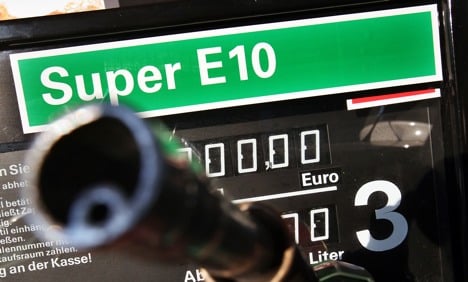Uwe Franke, the head of BP Europa, told the Friday edition of the Essen-based Wesdeutsche Allgemeine Zeitung daily that gasoline producers faced large penalties if they did not stick to government quotas for E10. The petrol with 10 percent ethanol has been widely shunned by drivers in Germany since its introduction in January.
“The costs for missing the quota will likely cost the industry between €300 and €400 million,” said Franke, adding petrol companies would have little alternative but to charge customers more.
E10 was supposed to be introduced across Germany this year, but petrol station chains like BP’s Aral stopped after many motorists refused to buy the new biofuel. Some were afraid the new gasoline, meant to reduce CO2 emissions, might damage their engines, while others took issue with its minor reduction in fuel efficiency.
In June, only one out of seven German drivers was reaching for E10 at the pump.
DAPD/The Local/mry



 Please whitelist us to continue reading.
Please whitelist us to continue reading.
Member comments